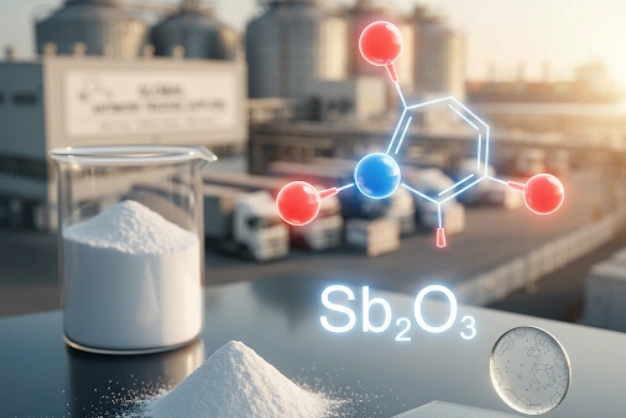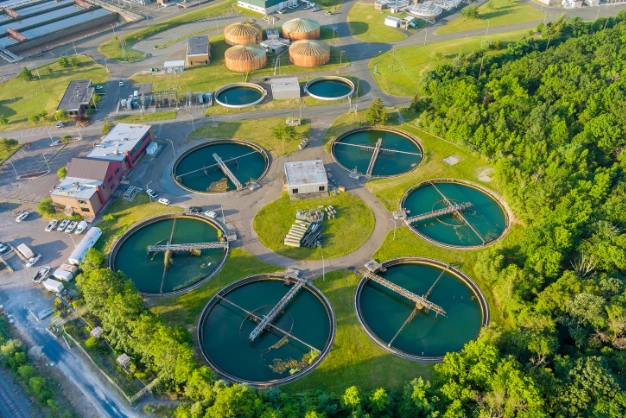TABLE OF CONTENTS
TABLE OF CONTENTS
The chemical industry is vast, comprising various segments that cater to numerous applications across multiple industries. Among these segments, commodity chemicals and specialty chemicals play pivotal roles. While both categories are crucial, they differ significantly in terms of production, characteristics, applications, and market dynamics. Understanding these differences can help businesses make informed decisions about sourcing, manufacturing, and using these chemicals. This article delves deep into the distinctions between commodity and specialty chemicals, providing a comprehensive overview of each aspect.
Definition: Commodity Chemicals vs. Specialty Chemicals
Commodity Chemicals
Commodity chemicals, also known as bulk chemicals, are produced on a large scale to meet global demand. These chemicals are typically standardized products with uniform quality and specifications. They are the building blocks of various industrial processes and are used in multiple sectors, including agriculture, manufacturing, and construction. Common examples include sulfuric acid, chlorine, ethylene, and ammonia.
Specialty Chemicals
Specialty chemicals, on the other hand, are produced in smaller quantities and are tailored for specific applications. These chemicals are often formulated to achieve particular performance characteristics, making them more complex and varied than commodity chemicals. They are used in specialized industries such as pharmaceuticals, cosmetics, electronics, and food processing. Examples include adhesives, surfactants, flavorings, and fragrances.
Production: Commodity Chemicals vs. Specialty Chemicals
Commodity Chemicals
The production of commodity chemicals involves large-scale industrial processes designed for high efficiency and cost-effectiveness. These processes are highly standardized and optimized for mass production. The manufacturing facilities for commodity chemicals are often large and capital-intensive, with a focus on minimizing production costs and maximizing output.
Commodity chemicals are typically produced in continuous processes, where raw materials are continuously fed into the production line, and finished products are continuously extracted. This approach ensures a steady supply of chemicals to meet global demand.
Specialty Chemicals
The production of specialty chemicals is more complex and involves smaller-scale operations compared to commodity chemicals. These chemicals are often produced in batch processes, where specific quantities are manufactured in distinct batches. This allows for greater flexibility in adjusting formulations and meeting precise customer requirements.
Specialty chemical production facilities are generally smaller and more versatile, allowing for quick changes in production lines to accommodate different products. The focus is on quality, performance, and innovation rather than sheer volume. As a result, the production costs for specialty chemicals are typically higher, but so are the profit margins.
Characteristics: Commodity Chemicals vs. Specialty Chemicals
Commodity Chemicals
Commodity chemicals are characterized by their uniformity and consistency. They are standardized products with well-defined chemical compositions and properties. This uniformity makes them suitable for use as raw materials in various industrial processes.
Because commodity chemicals are produced in large quantities, they are subject to rigorous quality control measures to ensure consistency. Their production processes are designed for efficiency, with a focus on reducing costs and meeting high-volume demand.
Specialty Chemicals
Specialty chemicals are defined by their unique properties and tailored formulations. Each specialty chemical is designed to perform a specific function, often requiring precise control over its composition and characteristics. This customization allows specialty chemicals to deliver superior performance in their intended applications.
The development of specialty chemicals involves extensive research and development to create formulations that meet specific customer needs. As a result, these chemicals can vary significantly in their properties, and quality control is focused on ensuring that each batch meets the required performance standards.
Applications: Commodity Chemicals vs. Specialty Chemicals
Commodity Chemicals
The applications of commodity chemicals are broad and varied, spanning numerous industries. These chemicals serve as fundamental building blocks for a wide range of products and processes. Some common applications include:
Agriculture: Fertilizers, pesticides, and herbicides.
Manufacturing: Raw materials for plastics, rubber, and synthetic fibers.
Construction: Concrete additives, coatings, and sealants.
Water Treatment: Disinfectants and pH adjusters.
Textiles: Dyeing and finishing agents.
Specialty Chemicals
Specialty chemicals are used in more specific and targeted applications, often requiring tailored formulations to achieve desired results. Their applications include:
Pharmaceuticals: Active ingredients and excipients in medications.
Cosmetics: Emollients, preservatives, and fragrances in personal care products.
Electronics: Conductive inks, adhesives, and encapsulants for electronic components.
Food Processing: Flavorings, colorings, and preservatives.
Automotive: Additives for lubricants and fuel.
Market Dynamics: Commodity Chemicals vs. Specialty Chemicals
Commodity Chemicals
The market for commodity chemicals is characterized by high competition and price sensitivity. Since these chemicals are standardized products, manufacturers compete primarily on price and production efficiency. The global nature of the market means that commodity chemical prices are influenced by factors such as raw material availability, energy costs, and global economic conditions.
Commodity chemical manufacturers must continually seek ways to reduce production costs and improve efficiency to remain competitive. This often involves investing in large-scale production facilities and adopting advanced technologies to optimize processes.
Specialty Chemicals
The market dynamics for specialty chemicals are quite different. These chemicals are valued for their unique properties and performance characteristics, which allows manufacturers to command higher prices. The focus is on innovation, quality, and meeting specific customer needs rather than competing solely on price.
The specialty chemicals market is driven by technological advancements, regulatory changes, and evolving customer demands. Manufacturers must invest in research and development to create new and improved products that address emerging market trends. Collaboration with customers to develop tailored solutions is also a key aspect of the specialty chemicals market.
Conclusion
In summary, commodity chemicals and specialty chemicals play distinct but complementary roles in the chemical industry. Commodity chemicals are the backbone of numerous industrial processes, providing essential raw materials in large quantities at competitive prices. Specialty chemicals, on the other hand, offer tailored solutions with unique properties, driving innovation and performance in specialized applications.
FAQs
How are commodity chemicals different from specialty chemicals?
Commodity chemicals are produced in large volumes and have broad applications, while specialty chemicals are produced in smaller quantities for specific, often high-value applications.
Contact Us
Questions or looking for a quote?




